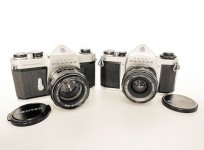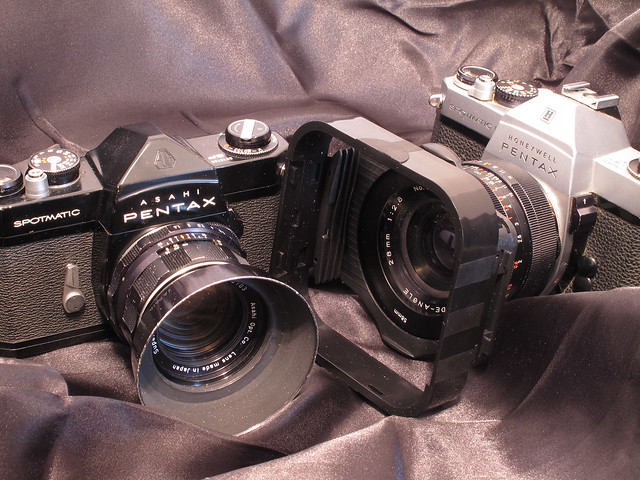Ronald M
Veteran
Image quality was not great. I had 12 all bought new. Diaphragm was weak. I dropped more than one screwing on lenses and they fell on my bed from 18 inches.
Diaphragm immediately became sticky from perfect before.
Have Nikons now to mate with Leicas, both digital and film in each, and Nikons are much better and Leicas are far better.
My 35 2.8 fell from my coat pocket to cement and all it got was a small finish imperfection.
Guess Pentax needed a premium line which they came out with for more money, but my kit was sold off by then.
Diaphragm immediately became sticky from perfect before.
Have Nikons now to mate with Leicas, both digital and film in each, and Nikons are much better and Leicas are far better.
My 35 2.8 fell from my coat pocket to cement and all it got was a small finish imperfection.
Guess Pentax needed a premium line which they came out with for more money, but my kit was sold off by then.












